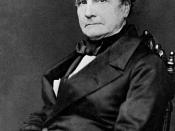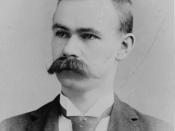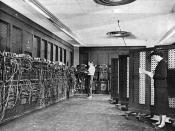The History and Future of Computers
With the advances in computer technology it is now possible for more and more Canadians to have personal computers in their homes. With breakthroughs in computer processing speeds and with computer storage capacity, the combination of this with the reduced size of the computer have allowed for even the smallest apartment to hold a computer. In the past the only places to have computers were military institutes and some universities; this was because of their immense size and price. Today with falling computer prices and the opportunity to access larger networks, the amount of computers has grown from just 10% in 1986 to 25% in 1994. Also, of the 25%, 34% of them were equipped with modems, which allow for connection to on line services via telephone lines.
The primitive start of the computer came about around 4000 BC; with the invention of the abacus, by the Chinese.
It was a rack with beads strung on wires that could be moved to make calculations. The first digital computer is usually accredited to Blaise Pascal. In 1642 he made the device to aid his father, who was a tax collector. In 1694 Gottfried Leibniz improved the machine so that with the rearrangement of a few parts it could be used to multiply. The next logical advance came from Thomas of Colmar in 1890, who produced a machine that could perform all of the four basic operations, addition, subtraction, multiplication and division. With the added versatility this device was in operation up until the First World War.
Thomas of Colmar made the common calculator, but the real start of computers as they are known today comes from Charles Babbage. Babbage designed a machine that he called a Difference Engine. It was designed to make many long...



Essay
This is good but the ending could be a litle better
8 out of 8 people found this comment useful.